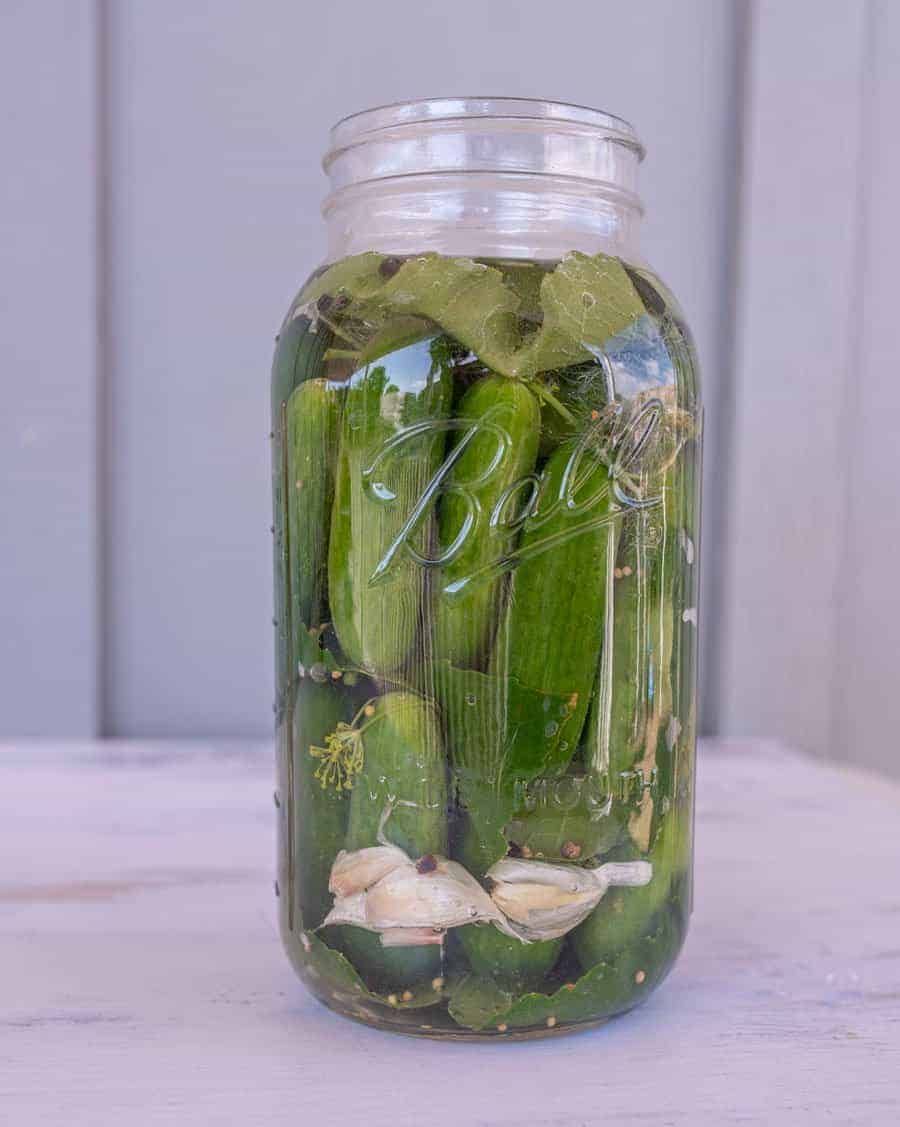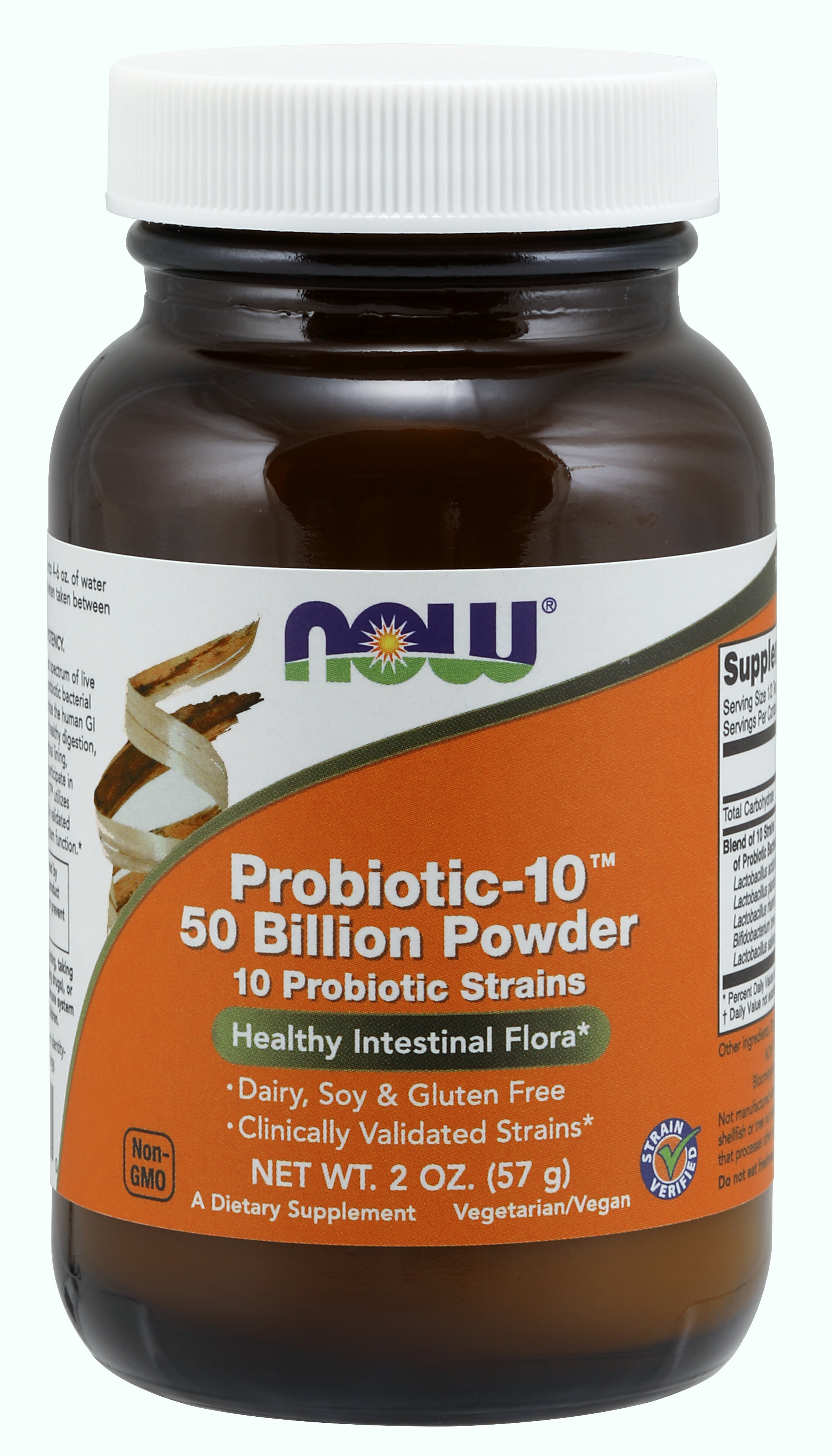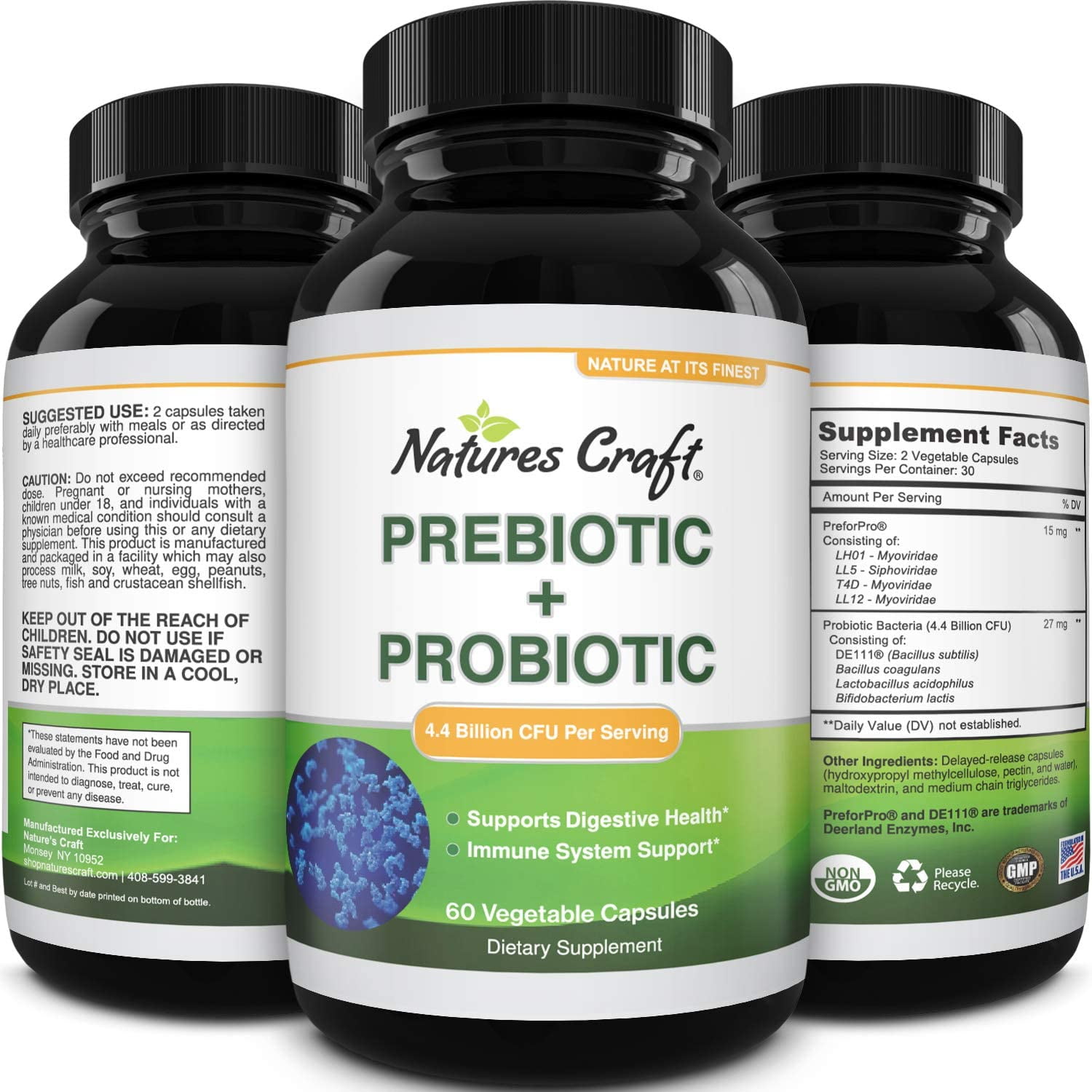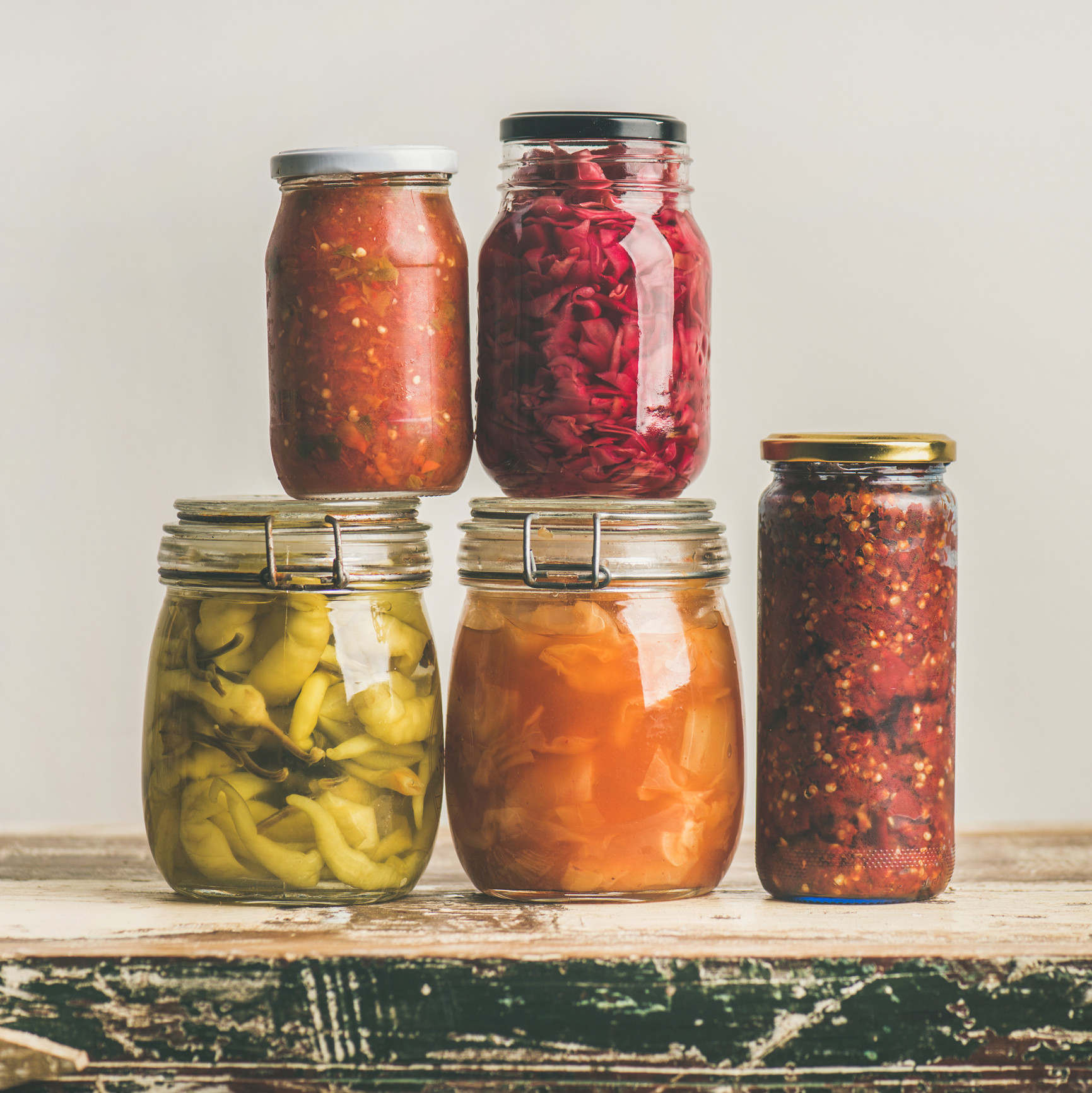By dr. Ananya mandal, md reviewed by sally robertson, b. Sc. Probiotics are live bacteria and yeasts that are thought to be beneficial in preventing several health conditions. They are usually consumed as supplements or yoghurts and are also referred to as “good bacteria.
 ”probiotics are said to restore the balance of bacteria in the gut when it has become disrupted through long-
term
antibiotic use or gastrointestinal disease, for example. However, there is little solid evidence to support this claim. According to the 2001 definition by the world health organization (who), probiotics are “live microorganisms which, when administered in adequate amounts, confer a health benefit on the host.
”probiotics are said to restore the balance of bacteria in the gut when it has become disrupted through long-
term
antibiotic use or gastrointestinal disease, for example. However, there is little solid evidence to support this claim. According to the 2001 definition by the world health organization (who), probiotics are “live microorganisms which, when administered in adequate amounts, confer a health benefit on the host.
The intestinal microbial community is a complex ecosystem, and introducing new organisms into this highly competitive environment is difficult. Thus, organisms that can produce a product that inhibits the growth of existing organisms have a characteristic advantage. The ability of probiotics to establish in the gi tract is enhanced by their ability to eliminate competitors. Some antimicrobials with producer organisms are enlisted in table 3. In different studies on humans and animals, beneficial microorganisms are used to improve the colonization resistance on body surfaces, such as gi, the urogenital, and the respiratory tract. Bifidobacteria produce acetic and lactic acids in a molar ratio of 3 : 2 ( desjardins & roy, 1990 ).
Do I need to take probiotics after I take antibiotics?
Antibiotic-associated diarrhea
probiotics have been studied for antibiotic-associated diarrhea in general, as well as for antibiotic-associated diarrhea caused by one specific bacterium, clostridium difficile. This section discusses the research on antibiotic-associated diarrhea in general. C. Difficile is discussed in a separate section below.
A 2017 review of 17 studies (3,631 total participants) in people who were not hospitalized indicated that giving probiotics to patients along with antibiotics was associated with a decrease of about half in the likelihood of antibiotic-associated diarrhea. However, this conclusion was considered tentative because the quality of the studies was only moderate. Patients who were given probiotics had no more side effects than patients who didn’t receive them.
Probiotics help the body achieve and maintain a healthy balance of bacteria, especially in the lining of your gut. They can also help restore the “good” bacteria in your body that get wiped out after taking antibiotics (which unfortunately don’t differentiate between good bacteria and the infection-causing ones), ultimately protecting the gut from more harmful bacteria and strengthening the gut microbiome overall.
In europe, probiotics are considered food supplements and such products cannot be labelled as probiotics at present. Research has shown that some probiotics can help to improve diarrhoea caused by infection or by treatment with antibiotics. Probiotics might also relieve some digestive symptoms. At present, there isn’t enough evidence to support other health claims or probiotics, or the evidence for their usefulness is inconclusive. Probiotics are generally considered safe for people with a normal immune system. If you want to try a probiotics for a health problem, you should ask your gp or dietitian for advice. The specific type of bacteria, dose and composition of the probiotic are important.
There is also reason to believe that some people benefit more from taking probiotics than others. For example, young says that individuals taking antibiotics , those with mood disorders, people with diabetes or blood sugar concerns, cancer patients, babies, allergy sufferers, and people with easily upset stomachs or ones dealing with constipation may benefit especially from taking a probiotic. "these populations should discuss with their healthcare provider about taking probiotics as it can have beneficial effects on their gi tract," she advises. Messer adds that people experiencing a lot of stress might also benefit from getting more probiotics either through diet or supplementation.
Should I try probiotics?
โพรไบโอติกส์ (probiotics) และพรีไบโอติกส์ (prebiotics) สองคำนี้เหมือนกันหรือไม่? ในร่างกายของเรานั้นมีจุลินทรีย์อาศัยอยู่เป็นจำนวนมาก โดยมีทั้งจุลินทรีย์ที่เป็นประโยชน์ จุลินทรีย์ที่ไม่ก่อประโยชน์และโทษและจุลินทรีย์ที่ก่อให้เกิดโทษต่อร่างกาย หากเกิดความผิดปกติในร่างกาย อาจส่งผลต่อสมดุลของจุลินทรีย์ที่อาศัยอยู่ในทางเดินอาหาร ปัจจุบันมีผลิตภัณฑ์มากมายในท้องตลาดเกี่ยวกับการรักษาสมดุลของจุลินทรีย์ในร่างกาย โดยคำคุ้นหูที่ถูกกล่าวถึงบ่อยครั้งคือ “โพรไบโอติกส์” และ “พรีไบโอติกส์” มีความแตกต่างกัน ดังนี้ โพรไบโอติกส์ (probiotics) เป็นจุลินทรีย์ขนาดเล็กซึ่งจัดเป็นกลุ่มจุลินทรีย์ชนิดดี สามารถพบได้ในอาหาร เช่น นมเปรี้ยว โยเกิร์ต กิมจิ มิโสะ เป็นต้น ผู้เชี่ยวชาญด้านทางเดินอาหาร ให้คำจำกัดความว่า โพรไบโอติกส์ คือ “จุลินทรีย์ที่มีชีวิต เมื่อรับประทานเข้าไปแล้วจะทำให้สุขภาพดีในภาวะต่างๆ โดยเป็นจุลินทรีย์ที่มีคุณสมบัติทนต่อกรดและด่าง สามารถจับที่บริเวณผิวของเยื่อบุลำไส้แล้วผลิตสารต่อต้านหรือกำจัดเชื้อจุลินทรีย์ชนิดอื่นๆ รวมถึงก่อให้เกิดประโยชน์ต่อสุขภาพได้” พรีไบโอติกส์ (prebiotics) คืออาหารชนิดหนึ่ง เป็นสิ่งไม่มีชีวิต ซึ่งร่างกายไม่สามารถย่อยและดูดซึมได้ที่ลำไส้เล็ก อาหารเหล่านี้จึงสามารถเข้าสู่ลำไส้ใหญ่ได้ในรูปไม่เปลี่ยนแปลง และจะถูกย่อยสลายโดยแบคทีเรียโพรไบโอติกส์ ทำให้กระตุ้นการเจริญเติบโตและการทำงานของแบคทีเรีย พบได้ในหัวหอม กระเทียม ถั่วเหลือง ถั่วแดง ไฟเบอร์ในผักและผลไม้ต่าง ๆ เป็นต้น กล่าวง่ายๆ ก็คือ พรีไบโอติกส์เป็นอาหารของโพรไบโอติกส์นั่นเอง ดังนั้นหากรับประทานอาหารพวกพรีไบโอติกส์ก็จะช่วยส่งเสริมฤทธิ์โพรไบโอติกส์ได้ดียิ่งขึ้น โพรไบโอติกส์จัดเป็นจุลินทรีย์ที่ให้ประโยชน์แก่ร่างกาย เรียกได้ว่าเป็นจุลินทรีย์ประจำถิ่นหรือ normal flora อย่างหนึ่งในทางเดินอาหาร หากร่างกายมีสุขภาพดีก็จะมีการรักษาสมดุลจุลินทรีย์ให้เป็นปกติ แต่ถ้าหากมีอะไรไปรบกวนสมดุลจุลินทรีย์ในร่างกาย จุลินทรีย์ประจำถิ่นในลำไส้ถูกรุกราน อาจเกิดผลกระทบตามมาได้ ลองจินตนาการดู หากร่างกายได้รับยาปฏิชีวนะเป็นระยะเวลานาน ยาเหล่านี้ส่งผลให้จุลินทรีย์ในร่างกายมีจำนวนลดลง เมื่อร่างกายมีการรับเชื้ออื่นซึ่งอาจก่อโรคเข้ามา อาจมีโอกาสสูญเสียจุลินทรีย์ดีในร่างกายได้ ดังนั้นการสร้างสภาวะความสมดุลระหว่าง normal flora และร่างกายนั้นจึงมีความสำคัญ ซึ่งการรับประทานโพรไบโอติกส์จึงเป็นทางเลือกอย่างหนึ่งในการเสริมจุลินทรีย์ชนิดดีและรักษาสมดุลจุลินทรีย์ในร่างกาย ในปัจจุบันโพรไบโอติกส์ที่เราพบเห็นกันได้ในท้องตลาดมีหลายรูปแบบ ไม่ว่าจะเป็นรูปแบบผงแป้ง (powders), รูปแบบแคปซูล (capsules), รูปแบบยาเม็ดเคี้ยว (chewable tablets), รูปแบบสารละลาย(solution drops) หรือรูปแบบยาเหน็บช่องคลอด (vaginal tablets) โดยผลิตภัณฑ์เหล่านี้มีวีธีการเก็บรักษาและประกอบไปด้วยเชื้อจุลินทรีย์ที่แตกต่างกันไป ยกตัวอย่างเชื้อที่พบเห็นได้ในผลิตภัณฑ์ต่างๆ ดังนี้ พรีไบโอติกส์ที่พบเห็นในท้องตลาดนั้น ส่วนใหญ่มักจะพบในรูปแบบผงแป้ง (powders) ประกอบไปด้วยสารประกอบเชิงซ้อนของคาร์โบไฮเดรต เช่น สารกลุ่มอินูลินและฟรุกโตโอลิโกแซ็กคาไรด์หรือในบางผลิตภัณฑ์อาจจำหน่ายในรูปแบบสูตรผสม ประกอบด้วยโพรไบโอติกส์และพรีไบโอติกส์ในตัวเดียวผลิตภัณฑ์เดียวกัน ปัจจุบันจึงมีการพัฒนาสูตรผลิตภัณฑ์หลากหลายมากขึ้น โดยมีการปรับสายพันธุ์จุลินทรีย์ที่เหมาะสมและเสริมฤทธิ์กันเพื่อเพิ่มประสิทธิภาพของโพรไบโอติกส์ โดยประเภทและสายพันธุ์ของโพรไบโอติกส์ที่ต่างกันล้วนมีผลต่อประสิทธิภาพในการรักษาที่แตกต่างกันออกไป ส่วนใหญ่มักพบเมื่อมีการรับประทานในขนาดที่สูงเกินไป โดยอาจจะทำให้เกิดภาวะลมในท้องเพิ่มขึ้น เกิดท้องอืดหรือแน่นท้องได้ หากท่านต้องการสอบถามข้อมูลเพิ่มเติม สามารถติดต่อได้ที่ศูนย์ข้อมูลยาโรงพยาบาลบำรุงราษฎร์ตลอด 24 ชั่วโมง.
โพรไบโอติกส์มักถูกเรียกว่า "แบคทีเรียดี" เพราะช่วยให้ลำไส้แข็งแรง ถ้าพูดถึงเรื่องแบคทีเรียหลายๆคนอาจจะคิดถึงเชื้อโรคร้ายที่ก่อให้เกิดโรคต่างๆ แต่จริงๆ แล้วแบคทีเรียนั้นมีหลายประเภททั้งแบคทีเรียที่ก่อโรค และแบคทีเรียดีที่ช่วยให้ร่างกายแข็งแรง ซึ่งเรียกว่า probiotics probiotics คือกลุ่มแบคทีเรียหรือยีสต์ที่อยู่ในระบบทางเดินอาหาร และระบบอื่นๆ ของร่างกาย ที่เมื่อมีอยู่ในประมาณที่เหมาะสมจะช่วยในการทำงานของระบบทางเดินอาหารและระบบอื่นๆ ของร่างกายเนื่องจากจุลินทรีย์ที่เป็นมิตรเหล่านี้มีส่วนช่วยในการดูดซึมสารอาหาร การป้องกันโรค และการรักษาภาวะที่ผิดปกติของร่างกาย.
Yogurt is one of the best sources of probiotics. It’s made from milk fermented by probiotics, mainly lactic acid bacteria and bifidobacteria. Health benefits associated with eating yogurt :improved bone, heart, and gastrointestinal health reduced risk of diabetes reduced risk of breast and colon cancer improved weight management additionally, yogurt may be suitable for people with lactose intolerance. This is because the bacteria turn some of the lactose into lactic acid, which is also what gives yogurt its sour taste. But keep in mind that not all yogurt contains live probiotics. Processing can sometimes kill the live bacteria. For this reason, make sure to choose yogurt with active or live cultures.
เชื่อว่าหลายๆ คนคงเคยได้ยินเกี่ยวกับ โพรไบโอติกส์และพรีไบโอติกส์ มาบ้าง หลายคนเลือกดื่มนมเปรี้ยว โยเกิร์ตเพื่อให้ได้จุลินทรีย์ที่มีประโยชน์ต่อลำไส้ ช่วยเรื่องระบบขับถ่าย แต่ทราบหรือไม่ว่า ยังมีอาหารแหล่งอื่นๆ ที่อุดมไปด้วย โพรไบโอติกส์และพรีไบโอติกส์ อีกทั้งยังมีประโยชน์ต่อร่างกายมากกว่าที่คุณเข้าใจ โพรไบโอติกส์ (probiotics) คือ? โดยปกติแล้วร่างกายของเรามีจุลินทรีย์อยู่มากมาย โดยเฉพาะในระบบทางเดินอาหาร มีทั้งจุลินทรีย์ที่มีประโยชน์และจุลินทรีย์ที่ก่อโรค “probiotics” คือ จุลินทรีย์ที่มีประโยชน์ต่อร่างกาย ช่วยยับยั้งการเจริญเติบโตของจุลินทรีย์ก่อโรค ในลำไส้ ลดการเกิดท้องเสีย ลดการอักเสบและอาการผิดปกติอื่นๆ ของลำไส้ เช่น ท้องอืด แน่นท้อง ป้องกันมะเร็งลำไส้ ส่งเสริมการดูดซึมสารอาหาร ช่วยเสริมสร้างภูมิคุ้มกันเป็นต้น การมี probiotics ที่เพียงพอในลำไส้ช่วยให้เกิดความสมดุล และลดโอกาสการเกิดโรคได้ แหล่งอาหารที่มี probiotics: เกิดจากอาหารที่ผ่านกระบวนการหมักบางชนิด เช่น นมเปรี้ยว โยเกิร์ต กิมจิ มิโซะ พรีไบโอติกส์ (prebiotics) คือ? prebiotics เป็นอาหารของ probiotics เป็นแหล่งพลังงานและช่วยในการเจริญเติบโตช่วยให้จุลินทรีย์probioticsแข็งแรงและมีปริมาณมากพอที่ส่งผลดีต่อสุขภาพ เมื่อกินเข้าไป ไม่ถูกย่อยในระบบทางเดินอาหาร ร่างกายไม่สามารถดูดซึมได้ แหล่งอาหารที่มี prebiotics: พบในน้ำนมแม่ พืช ผัก ผลไม้ ที่มีใยอาหารมาก เช่น เซลลูโลส เฮมิเซลลูโลส อินูลิน เพคติน ฟรุคโตโอลิโกแซ็คคาไรค์ ตัวอย่างอาหารที่เป็นแหล่งของ prebiotics แสดงในตารางด้านล่าง จะเห็นได้ว่า เราสามารถเพิ่มจุลินทรีย์ที่มีประโยชน์กับร่างกายหรือที่เรียกว่า “probiotics” ได้โดยตรงด้วยการกิน โยเกิร์ต นมเปรี้ยว และสามารถกินอาหารที่มี “prebiotics” ซึ่งเป็นอาหารของ probiotics เช่น กล้วย แอปเปิ้ล หอมหัวแดง กระเทียม ข้าวโอ๊ต ถั่วเหลือง เป็นต้น ซึ่งจะช่วยลดการเกิดโรคในลำไส้ เช่น ท้องเสีย ท้องอืด มะเร็งลำไส้ ช่วยการดูดซึมสารอาหารที่มีประโยชน์ ช่วยลดภาวะอ้วน ช่วยเพิ่มภูมิคุ้มกันให้กับร่างกาย และประโยชน์อื่นๆ อีกมากมาย แหล่งข้อมูล.
How Do They Work?
We have trillions of bacteria living on or in us – and over 80% of these live in our gut. Over thousands of years of co-evolution, we have developed a way of working together with our bacteria, which play a hugely important role in our bodies. They help us synthesise vitamins and digest fibre. A growing body of evidence also suggests that they play a vital role in our health and wellbeing, too. Imbalances in our gut bacteria can cause us to develop chronic diseases , including obesity, type 2 diabetes and inflammatory bowel disease. These imbalances can occur when you take antibiotics , which can wipe out the healthy bacteria in your gut.
Probiotics are a combination of live bacteria and yeasts which people consume in foods, such as post-workout snacks or supplements, in hopes of gaining health benefits. We about 30 to 40 trillion bacteria naturally living inside of us, and probiotics work by influencing that population of bacteria. When you think of bacteria, it's easy to immediately associate it with conditions like acne or more serious diseases. However, there are good and bad forms of bacteria. Probiotics are similar to the bacteria that live naturally in your body and may help to fight off bad bacteria that can negatively affect your health.
The right type and amount of probiotics, meaning the healthy bacteria and yeasts they contain, support your body in several ways – from promoting healthy immune function and successful weight management, to minimizing symptoms like occasional diarrhea, uncomfortable bloating, and constipation. * how do probiotics work? not all probiotics are the same, nor do they all have the same effects in the body. Different strains of good bacteria can be helpful in different areas. Lactobacillus spp, bifidobacterium spp, saccharomyces boulardii, and bacillus coagulans are the most common beneficial bacteria used in probiotic nutritional supplement products.
Developed, as the name suggests, with players and nutritionists from new zealand's all blacks rugby team, this 3-in-1 supplement is trsuted by professional athletes – and what works for them can work for you too. Providing three daily supplements – a multivitamin, omega 3 fish oils and probiotic capsule with 20 billion live cultures – the elite all blacks 3-in-1 health essentials supplement provides everything athletes need for everyday wellbeing and performance. The five strains of live probiotic cultures have all been carefully selected and are found naturally in the human body, to ensure they are gentle on your system.
What Do They Do?
Probiotic bacteria perform some important functions including supporting a healthy immune system, metabolism and digestion. Research indicates that imbalances in the gut microbiota may be linked to numerous diseases , including cancer and type 2 diabetes. Your gut microbiota is also strongly influenced by your food choices and you can easily support this by including more probiotic as well as prebiotic-rich foods into your daily diet. Discover even more top tips for digestive health , including does diet affect gut health ? also, check out some of our delicious gut-friendly recipes from satisfying soups to salads, including a whole range of tasty plant-based options.
Https://www. Ncbi. Nlm. Nih. Gov/pmc/articles/pmc4991899/ https://www. Ncbi. Nlm. Nih. Gov/pmc/articles/pmc4818210/ https://www. Ncbi. Nlm. Nih. Gov/pmc/articles/pmc4879732/ https://www. Ncbi. Nlm. Nih. Gov/pmc/articles/pmc4908950/ https://www. Ncbi. Nlm. Nih. Gov/pmc/articles/pmc5722804/ https://www. Ncbi. Nlm. Nih. Gov/pmc/articles/pmc4155821/ https://www. Frontiersin. Org/articles/10. 3389/fpsyt. 2018. 00730/full https://www. Ncbi. Nlm. Nih. Gov/pmc/articles/pmc5670282/ https://www. Frontiersin. Org/articles/10. 3389/fpsyt. 2019. 00164/full https://www. Ncbi. Nlm. Nih. Gov/labs/pmc/articles/pmc5808898/ https://www. Ncbi. Nlm. Nih. Gov/pmc/articles/pmc5964481/ https://www. Ncbi. Nlm. Nih. Gov/pmc/articles/pmc4875742/ https://www. Ncbi. Nlm. Nih. Gov/pmc/articles/pmc5601789/ https://www. Nature. Com/articles/s41591-019-0559-3 https://www. Ncbi. Nlm. Nih. Gov/pmc/articles/pmc5266733/ https://www. Ncbi. Nlm. Nih. Gov/labs/pmc/articles/pmc6219592/ https://www. Sciencedirect. Com/science/article/pii/s1756464619300684 https://www. Ncbi. Nlm. Nih. Gov/pubmed/32019158 https://academic. Oup. Com/ajcn/article/100/4/1075/4576460?login=false https://www. Ncbi. Nlm. Nih. Gov/labs/pmc/articles/pmc5819037/ https://www. Sciencedirect. Com/science/article/pii/s0271531720304899?via%3dihub https://www. Nature. Com/articles/nrmicro. 2016. 142 https://www. Ncbi. Nlm. Nih. Gov/pmc/articles/pmc4176637/ https://www. Ncbi. Nlm. Nih. Gov/pmc/articles/pmc3419998/.
"if you eat a diet rich in plant-based and fermented foods, you will be ingesting a variety of microbes," says mayer at ucla. "and the more you feed them, the greater their abundance and diversity in the gut. " what do they eat? fiber called prebiotics. Some good sources are artichokes, asparagus, garlic, onions, and whole grains. But with a supplement, you consume the bacteria in isolation, cresci says. If you get your good bacteria in fermented foods such as yogurt and sauerkraut, you'll also get their beneficial byproducts, such as acids and enzymes. Editor's note: this article also appeared in the january 2019 issue of consumer reports on health.
Aim to get 30g of fiber per day from plant foods, including prebiotics, to support your gut health and microbiome balance. If you want to increase the stakes, try to eat the rainbow and get 30 plant foods of different colours into your diet per week. The best prebiotics are plants because they come neatly packaged up with other phytochemicals, like antioxidant polyphenols (found in colourful plants), and nutrients like vitamins and minerals that are essential for the body. Considering prebiotic supplements? remember that they don’t come with all these added benefits. They are not a silver bullet, no matter what the packet says, because a diverse and balanced diet has been shown time and time again to be effective at promoting general health, healthy body weight, and preventing disease.

 My impression of preserving
My impression of preserving

 The ability of probiotics to establish in the gi tract is enhanced by their ability to eliminate competitors. Some antimicrobials with producer organisms are enlisted in table 3. In different studies on humans and animals, beneficial microorganisms are used to improve the colonization resistance on
The ability of probiotics to establish in the gi tract is enhanced by their ability to eliminate competitors. Some antimicrobials with producer organisms are enlisted in table 3. In different studies on humans and animals, beneficial microorganisms are used to improve the colonization resistance on
 However, this conclusion was considered tentative because the quality of the studies was only moderate. Patients who were given probiotics had no more side effects than patients who didn’t receive them.
However, this conclusion was considered tentative because the quality of the studies was only moderate. Patients who were given probiotics had no more side effects than patients who didn’t receive them.:max_bytes(150000):strip_icc()/__opt__aboutcom__coeus__resources__content_migration__serious_eats__seriouseats.com__recipes__images__2017__08__20170808-preservation-acid-pickling-vicky-wasik-15-b3c5c7b0b1494aa285a99689aa70bae5.jpg)
 Temperatures of 55º to
65ºf are acceptable,
but the fermentation will take 5 to 6 weeks. Avoid temperatures above 80ºf, or pickles will
become too soft during fermentation.
Temperatures of 55º to
65ºf are acceptable,
but the fermentation will take 5 to 6 weeks. Avoid temperatures above 80ºf, or pickles will
become too soft during fermentation.